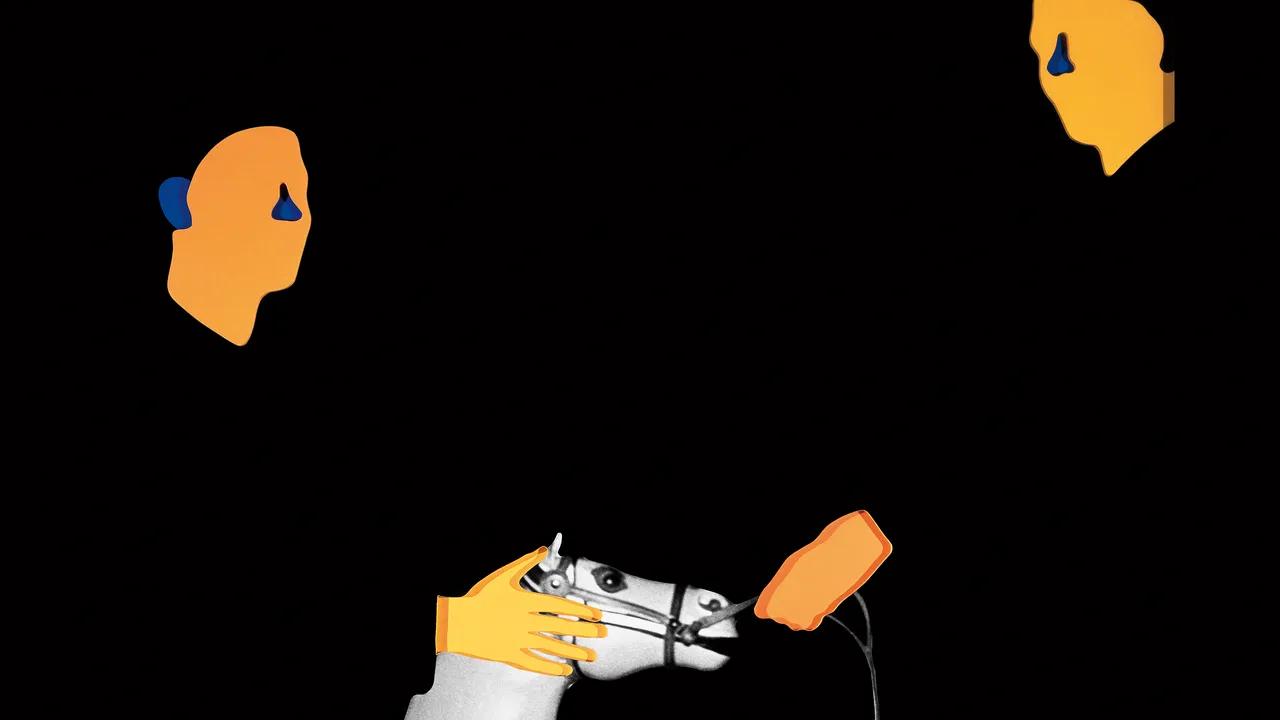MGMT can’t seem to wake themselves up on Loss of Life

MGMT always seem to find a way to stay relevant, for better or for worse. Their 2008 hit song “Time to Pretend” has re-entered the public sphere after it was featured in last year’s blockbuster film “Saltburn.” In 2020 their song “Little Dark Age” started trending on TikTok among members of the Alt-Right. Now the psychedelic pop and indietronica duo of Andrew VanWyngarden and Ben Goldwasser have returned with their fifth studio album and first for independent label Mom + Pop Music, titled Loss of Life.
On Loss of Life, MGMT diverges from the synthpop and psychedelically gothic sound of their 2018 record, Little Dark Age. Instead, they attempt to fuse the nostalgia of late aughts indie pop, the style from where they first gained an audience, with more modern progressive pop sensibilities. The first single and second track on the album, “Mother Nature,” does this best. Basic song structure, lush drums and guitars, peaceful vocals, and a catchy hook make for a radio-ready song, and one I believe to be the best out of the bunch. Unfortunately, the duo sputters out from there, with the majority of the songs slogging on far longer than their runtime warrants. “People In The Streets” is particularly offensive in this regard, clocking in at over five and a half minutes with multiple instrumental breaks that do nothing but lull one to sleep. “I Wish I Was Joking” is another half-baked attempt at a catchy tune. VanWyngarden tries to sing of the lull of daily life, but he doesn’t even seem to care about his subject matter, as his sleepy vocals demonstrate.
MGMT struggled when they tried to switch up their sound as well. The band is joined by French alt-pop artist Christine and the Queens for a pastiche of 80’s sophisti-pop in “Dancing in Babylon.” The ballad is earnest, but the lyrics come off as kitschy when paired with an irritatingly dull piano. Chris of Christine and the Queens sounds nice on his own, but he is unfortunately paired in duet with VanWyngarden’s worst vocal performance of the record, one in which he sounds remarkably similar to Ed Sheeran. The song also vastly overstays its welcome; just when you think it’s over it jumps right back into the unmoving chorus.
The album isn’t all for not though, as the longest song on Loss of Life, “Nothing Changes,” is actually a beautifully arranged, multi-phased cut from the middle of the album. Well-timed backing vocals and a driving bass line create a beautiful atmosphere of reflection and acceptance of the present. An ethereal horn part appears in the middle of the track as well, one that almost sounds like it was taken from a lounge piece. When VanWyngarden’s vocals come back in he is accompanied by the horns and creates the most exciting and triumphant moment on the record. As good as “Nothing Changes” is, it gets lost in the track list and would have made much more sense as an endpiece. The following songs, “Phradie’s Song” (an especially boring song), the aforementioned “I Wish I was Joking,” and the title track closer all fail to live up to “Nothing Changes.”
MGMT is at their peak when they are catchy, energetic, and larger-than-life. The duo largely fails to do any of that on Loss of Life, and instead sound as lethargic and bored as ever. On the title track closer VanWyngarden sings of death and the difficulty in accepting an end, but by the sound of the track and album as a whole, MGMT accepted an end to their artistry before recording even started.